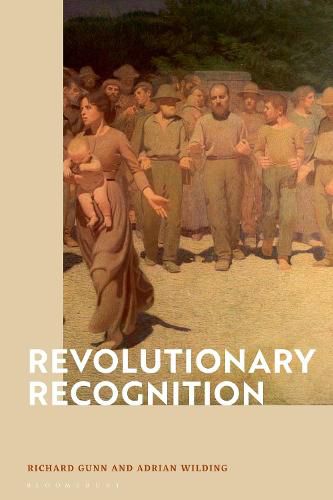Readings Newsletter
Become a Readings Member to make your shopping experience even easier.
Sign in or sign up for free!
You’re not far away from qualifying for FREE standard shipping within Australia
You’ve qualified for FREE standard shipping within Australia
The cart is loading…






Revolutionary Recognition represents a major contribution to contemporary political theory. It argues that human emancipation is only possible in a society characterised by ‘mutual recognition’. In present-day political theory, the term ‘recognition’ has become popular and widely discussed, but has become synonymous with reformist scenarios, such as social democratic politics and the politics of identity.
Richard Gunn and Adrian Wilding undertake a comprehensive critique of existing understandings of recognition, particularly those of Axel Honneth and Charles Taylor, returning ‘recognition’ to its original meaning in the work of Hegel and Marx, and showing how mutual recognition has revolutionary rather than merely reformist implications. Gunn’s and Wilding’s work is unapologetically political and introduces a new principle - ‘mutual recognition’ - around which radical politics can organise. This book is a ground-breaking contribution to left wing theory and is relevant as both a scholarly text and a rallying cry to the Left.
$9.00 standard shipping within Australia
FREE standard shipping within Australia for orders over $100.00
Express & International shipping calculated at checkout
Revolutionary Recognition represents a major contribution to contemporary political theory. It argues that human emancipation is only possible in a society characterised by ‘mutual recognition’. In present-day political theory, the term ‘recognition’ has become popular and widely discussed, but has become synonymous with reformist scenarios, such as social democratic politics and the politics of identity.
Richard Gunn and Adrian Wilding undertake a comprehensive critique of existing understandings of recognition, particularly those of Axel Honneth and Charles Taylor, returning ‘recognition’ to its original meaning in the work of Hegel and Marx, and showing how mutual recognition has revolutionary rather than merely reformist implications. Gunn’s and Wilding’s work is unapologetically political and introduces a new principle - ‘mutual recognition’ - around which radical politics can organise. This book is a ground-breaking contribution to left wing theory and is relevant as both a scholarly text and a rallying cry to the Left.